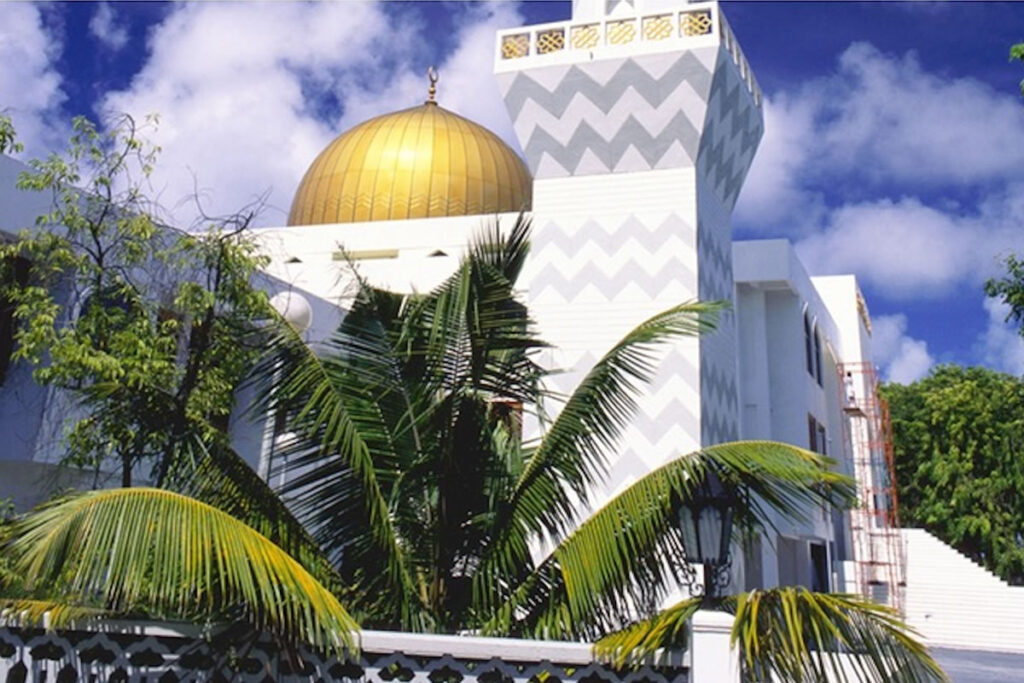Maldives was newly included for IWI 2022 assessment amongst 33 Muslim majority counties for which religiosity (Deen) data is available from World Values Surveys. Former leaders, Indonesia and Malaysia, share second place.
That these three demonstrate exemplary well-being reflects Islamic resilience in facing COVID-19 pandemic’s travails. They are also societies where women play large roles contributing to societal well-being.
Two prominent countries, Turkey and Pakistan, displayed the greatest one-year fall of rankings due to economic and political problems, exacerbated by the pandemic. Tunisia dropped from second place last year, coinciding with the appearance there of authoritarian rule.
Stellar performer is Kosovo, newly-independent in 2008, although recognised by just half of UN-member states. Kosovo shows the sharpest well-being rise. Kosovans are ethnically Albanians, while Albania itself stands last in IWI 3.0 rankings. Kosovo itself placed last in 2013 and 2021 Islamic Well-Being Indexes.
The Islamic Well-Being Index (IWI) aims to assess the mean Islamic condition of Muslim citizens in majority Muslim countries. Two countries facing existential threats did well in the new rankings for Muslim countries (IWI 3.0-2022).
As Maldives is the 2022 leader in Islamic Well-Being, one may expect it to be a virtual paradise. However, the sea that provides its allure, also causes great unease as sea-level rise from global warming threatens to overwhelm the island nation within 60 years. The faith of Maldivians however, remains high.
The 2022 Index follows the approach detailed in the writer’s 2021 article “An Enhanced Islamic Well-Being Index (IWI 2.0-2021) for Muslim Countries,” based on the Higher objectives of Islamic Law (Maqasid al-Shari‘ah) published in Islam and Civilisational Renewal, journal of IAIS Malaysia.
This is an enhanced version of “A New Islamic Rating Index of Well-Being for Muslim Countries,” published in 2013.
The five essential maqasid – protection of religion, life, intellect, lineage, property – as proposed by Abu Hamid al-Ghazali (died 1111CE), are the salient purposes of Shari’ah by general consensus (Kamali).
Benefits of the IWI are that it offers a scorecard that highlights leader and laggard countries and provides insights for countries that aspire to move to a higher state.
The IWI indicators provide a way to spot problems, set targets, track trends, understand outcomes, and identify best policy practices.
Fifty majority Muslim countries could be assessed for the four Maqasid fields of Life, Intellect, Family and Wealth. Based on composite averages, Kazakhstan (1), Tunisia (2), and Kosovo (3) did best in rankings. Morocco and Oman declined most.
Leaders in the Life Objective are UAE (1), Albania (2) and Jordan (3). Those that improved most were Kosovo and Maldives, while Morocco and Algeria showed the greatest decline.
Leaders in the Intellect Objective are Kyrgyzstan (1), Albania (2), and Bosnia Herzegovina (3).
Leaders in the Family Objective are Tunisia (1), Iran (2), Kazakhstan and Syria (3), while Morocco and Jordan fell sharply. Divorce rates increased worldwide, particularly in Morocco and Oman (doubled) in 2019-2020, exacerbated by pandemic lockdown restrictions, but especially in Morocco following 2004 revision of the Moudawana family code, which allowed women to request a marriage dissolution.
Leaders in the Wealth Objective are Palestine (1), Burkina Faso (2), Malaysia and UAE (3). Palestine’s position is not significant since it reflects paucity of data.
Comparing overall Muslim country averages for IWI indicators with World average values, shows Muslim countries often fare worse than World averages, except in Religiosity, homicide rates, Gini coefficient, ecological footprint, and infant mortality rates, where they perform better.
This year’s Index identified leading countries that showed resilience facing the pandemic, but also those that were severely impacted (Turkey and Pakistan) and declined most in rankings.
Source: https://www.amust.com.au/2022/07/islamic-well-being-index-2022-maldives-tops-indonesia-and-malaysia/

